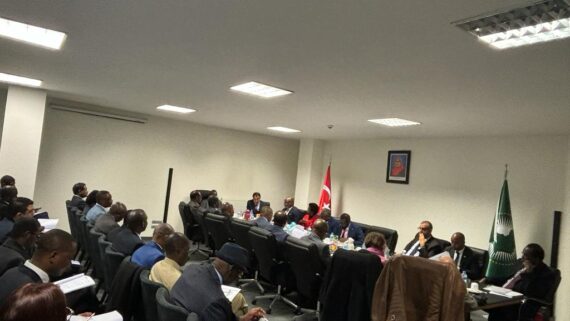In the realm of franchising, the dynamic partnership between franchisors and franchisees forms the backbone of a collaborative business model. Franchising involves granting individuals or entities (franchisees) the right to operate businesses under established brand identities and operational systems of franchisors. This article delves into the essence of franchising, the roles of franchisors and franchisees, and the pivotal franchising agreement that binds them. The franchising agreement encompasses crucial elements such as territorial rights, financial obligations, operational standards, and dispute resolution mechanisms. Disclosing vital information, adhering to legal standards, and maintaining clarity are fundamental in these agreements. Bicak stands out as a legal beacon in the franchising landscape, offering services ranging from crafting meticulously drafted franchising agreements to overseeing their execution. The firm’s prowess extends to dispute resolution, with its legal experts adeptly mediating, arbitrating, and advocating to ensure equitable solutions. With a holistic approach, Bicak solidifies its role as a trusted partner in navigating the complex legal terrain of franchising.
Fostering Growth Through Franchising in Turkey
In the dynamic landscape of modern commerce in Turkey, the concept of franchising has emerged as a powerful strategy for business expansion, allowing aspiring entrepreneurs to step into the realm of self-employment while leveraging established brand identities and proven operational systems. This strategic alliance between the franchisor and the franchisee forms the cornerstone of the franchising model, where both parties play distinctive yet interconnected roles, fostering growth and mutual success.
Franchising: A Collaborative Business Model
Franchising is a business strategy that revolves around the concept of replication and partnership. At its core, it enables established companies, known as franchisors, to grant individuals or entities, referred to as franchisees, the right to operate their own businesses under the franchisor’s brand and using their established business model. This symbiotic relationship allows franchisees to enter the market with a recognized brand, established processes, and ongoing support, reducing the risks associated with starting a business from scratch.
Franchisor: The Visionary Partner
The franchisor stands as the visionary architect behind the brand’s success story. They are the originators of a proven business concept, characterized by a unique value proposition, operational protocols, and a recognizable brand identity. Franchisors meticulously craft the framework for the franchise system, offering franchisees not just a business opportunity, but a blueprint for success. McDonald’s, for instance, exemplifies the franchisor role with its globally recognized golden arches and standardized processes that ensure a consistent experience across its franchises.
Franchisee: Bringing the Vision to Life
On the other side of the coin, franchisees are the entrepreneurial spirits who breathe life into the franchisor’s vision. They invest in the franchise opportunity to establish and manage their own outlets, adhering to the franchisor’s established guidelines. By joining forces with the franchisor, franchisees gain access to an established customer base and support network, setting the stage for growth. An example of a franchisee-driven success story is Subway, where individual franchisees operate their sandwich shops while maintaining the brand’s commitment to customization and freshness.
As we delve deeper into the realm of franchising, we will explore the key elements of a franchising agreement, the legal intricacies surrounding these agreements, and how dedicated legal services can safeguard and optimize the interests of both franchisors and franchisees.
Stay tuned for the subsequent segments of our exploration, where we’ll uncover the inner workings of the franchising relationship and the legal framework that underpins its vitality.
Franchising Agreement: The Cornerstone of Collaboration
In the world of franchising, where two distinct entities come together to form a symbiotic partnership, the franchising agreement stands as the pivotal document that outlines the rights, responsibilities, and expectations of both franchisors and franchisees. This legally binding contract not only provides a roadmap for the franchise relationship but also serves as a blueprint for maintaining consistency and preserving the integrity of the brand across various locations.
Defining the Franchising Agreement
At its essence, the franchising agreement is a comprehensive legal document that formalizes the partnership between the franchisor and the franchisee. It establishes the terms under which the franchisee is granted the privilege to operate under the franchisor’s brand, utilizing their established business model, trademarks, and proprietary systems. This agreement delineates the parameters for franchisee support, quality control, operational standards, and financial obligations.
Key Elements of a Franchising Agreement
- Franchise Territory and Location: The agreement defines the geographical area within which the franchisee has the exclusive right to operate. It also addresses the process of site selection and approval, ensuring that new locations align with the brand’s strategic vision.
- Fees and Financial Obligations: Franchisees are typically required to pay various fees to the franchisor, including an initial franchise fee, ongoing royalty fees, and potentially marketing or advertising contributions. These financial terms are outlined in the agreement.
- Intellectual Property Usage: The franchising agreement outlines the terms and limitations of using the franchisor’s trademarks, trade secrets, and other intellectual property. This safeguards brand consistency and prevents unauthorized use.
- Operational Standards: The agreement specifies the operational guidelines and standards that franchisees must adhere to. This encompasses everything from the products and services offered to customer service protocols.
- Training and Support: The franchisor’s obligations regarding initial and ongoing training, as well as the type and extent of support provided to franchisees, are detailed in the agreement.
- Term and Renewal: The agreement stipulates the duration of the franchise relationship and outlines the conditions for renewal or termination.
- Termination and Dispute Resolution: Procedures for terminating the agreement, addressing breaches of contract, and methods for resolving disputes are laid out to ensure a clear path forward in case of disagreements.
- Transfer and Assignment: If a franchisee wishes to sell or transfer their franchise, the agreement usually includes provisions outlining the process, approval requirements, and any associated fees.
Ensuring Mutual Success
The franchising agreement serves as the guiding framework that nurtures collaboration and fosters mutual success between franchisors and franchisees. As we proceed, we will delve into the legal aspects of these agreements, highlighting their significance in safeguarding the interests of both parties while facilitating a harmonious and productive business relationship. Stay tuned for our next installment, where we explore the legal intricacies that underpin the franchising landscape.
Legal Aspects of the Franchising Agreement: Balancing Rights and Responsibilities
Within the intricate tapestry of franchising, the legal dimensions of the franchising agreement serve as the linchpin that upholds the integrity of the partnership between franchisors and franchisees. This critical component ensures that the collaboration is not only productive but also equitable, protecting the interests of both parties while setting the stage for sustainable growth.
The Foundation of Legally Binding Commitments
The franchising agreement is not merely a formality; it’s a legally binding contract that establishes the parameters within which both the franchisor and franchisee must operate. This legal document codifies the rights and obligations of each party, instilling a sense of predictability and order within the franchising relationship. Every facet of the agreement, from financial obligations to operational standards, carries legal weight, underpinning the need for precision and clarity in its drafting.
Disclosure and Transparency
One of the cornerstones of franchising law is the requirement for full and transparent disclosure. Franchisors are legally obligated to provide potential franchisees with a Franchise Disclosure Document (FDD) before the signing of the agreement. The FDD contains essential information about the franchisor’s history, financials, litigation history, and details about the franchise system. This empowers prospective franchisees to make informed decisions based on a complete understanding of the opportunity.
Mitigating Legal Risks
Franchising agreements are not immune to disputes and challenges. Legal risks can emerge from issues such as breach of contract, intellectual property disputes, non-compliance with operational standards, and more. Therefore, these agreements often include clauses outlining dispute resolution mechanisms, such as mediation, arbitration, or even litigation if necessary. These provisions offer a structured path for addressing conflicts while minimizing the disruption to the business relationship.
Changing Landscapes and Evolving Laws
Navigating the legal landscape of franchising requires vigilance and adaptability. Laws and regulations surrounding franchising can vary across jurisdictions and evolve over time. An effective franchising agreement anticipates these changes and includes clauses that allow for modifications to ensure compliance with current and future legal requirements.
Legal Counsel: A Necessity, Not an Option
Given the intricacies and potential legal complexities, both franchisors and franchisees often seek the guidance of legal professionals experienced in franchising law. These legal experts help draft and review agreements, ensuring that terms are equitable, rights are protected, and obligations are clearly defined. Their expertise extends beyond the initial drafting; they play a crucial role in addressing disputes, renegotiating terms, and maintaining legal compliance throughout the franchising relationship.
Franchise-Focused Legal Services
In the intricate world of franchising, where legal precision and strategic guidance are paramount, Bicak emerges as a steadfast partner, equipped with an array of tailored legal services that safeguard the interests of both franchisors and franchisees. With an unwavering commitment to excellence, our firm offers expertise in drafting airtight franchising agreements, overseeing their execution, and providing adept dispute resolution services.
Drafting Franchising Agreements: Crafting a Blueprint for Success
At Bicak, we recognize that the franchising agreement is the bedrock of the franchisor-franchisee relationship. Our seasoned legal professionals meticulously craft agreements that strike an equilibrium between the franchisor’s vision and the franchisee’s aspirations. By ensuring each term and condition is thoughtfully articulated, we create a comprehensive legal framework that underscores clarity, consistency, and mutual understanding. Our agreements address every key element, from intellectual property usage to operational standards, setting the stage for a harmonious and productive partnership.
Monitoring Execution for Adherence and Excellence
Executing a franchising agreement is not a one-time event—it’s an ongoing commitment to upholding brand integrity and operational excellence. Bicak takes a proactive approach to monitoring the execution of these agreements, ensuring that both franchisors and franchisees adhere to the stipulated terms. Our diligent oversight helps prevent potential disputes and promotes the longevity of the franchising relationship. With a keen eye on evolving legal and industry standards, we aid in adapting the agreement as needed to meet changing circumstances.
Resolving Disputes: Mediators, Arbitrators, and Advocates
Disputes are an unfortunate reality in any business relationship, and franchising is no exception. Bicak specializes in dispute resolution, offering a spectrum of services to address conflicts efficiently and effectively. Our skilled legal team serves as mediators, working collaboratively with both parties to find common ground and amicably resolve disputes. When more structured resolution is required, our attorneys step into the role of arbitrators, guiding the process with legal expertise and impartiality. And if litigation becomes necessary, our seasoned litigators advocate passionately for our clients’ rights in the courtroom.
Your Trusted Partner in Franchising Legalities
Bicak’s dedication to the franchising sector is unwavering. We recognize that franchisors and franchisees alike need a legal partner who not only understands the intricacies of franchising law but also values the success of each unique partnership. With a comprehensive suite of services ranging from agreement drafting to dispute resolution, we stand as your stalwart advocate, ensuring that your franchising journey is navigated with precision, fairness, and integrity.
As we conclude this exploration of franchising’s legal landscape, we invite you to connect with Bicak to discover firsthand the expertise and commitment that make us a trusted leader in the realm of franchising law.
 English
English Türkçe
Türkçe Français
Français Deutsch
Deutsch










Comments
No comments yet.